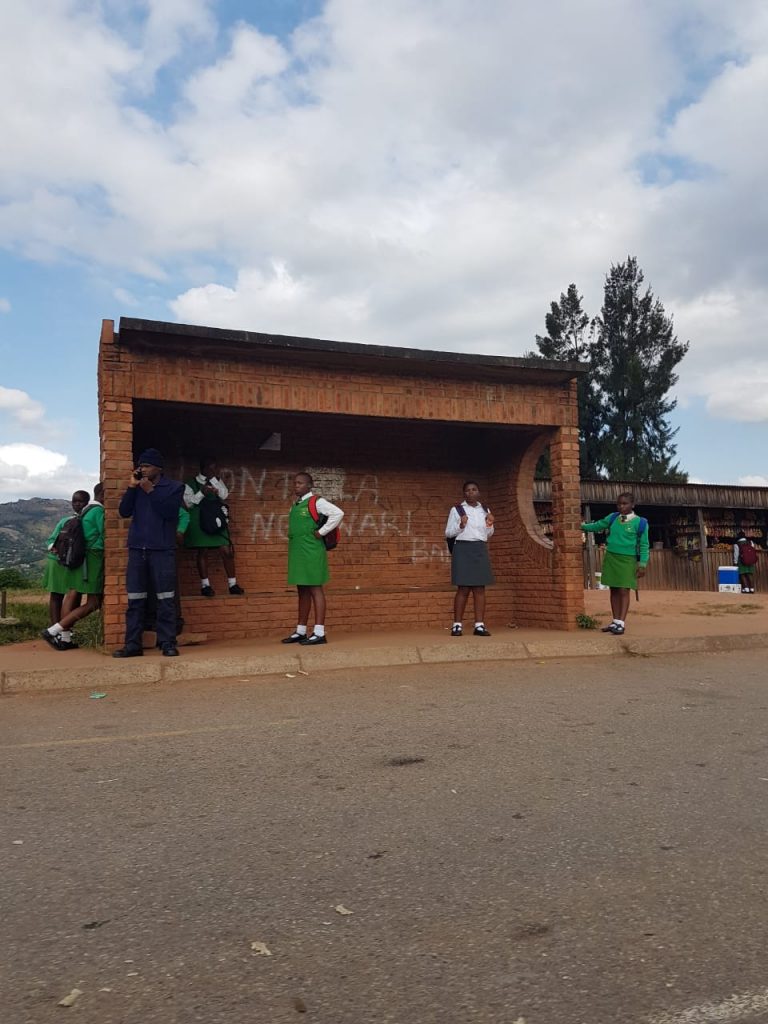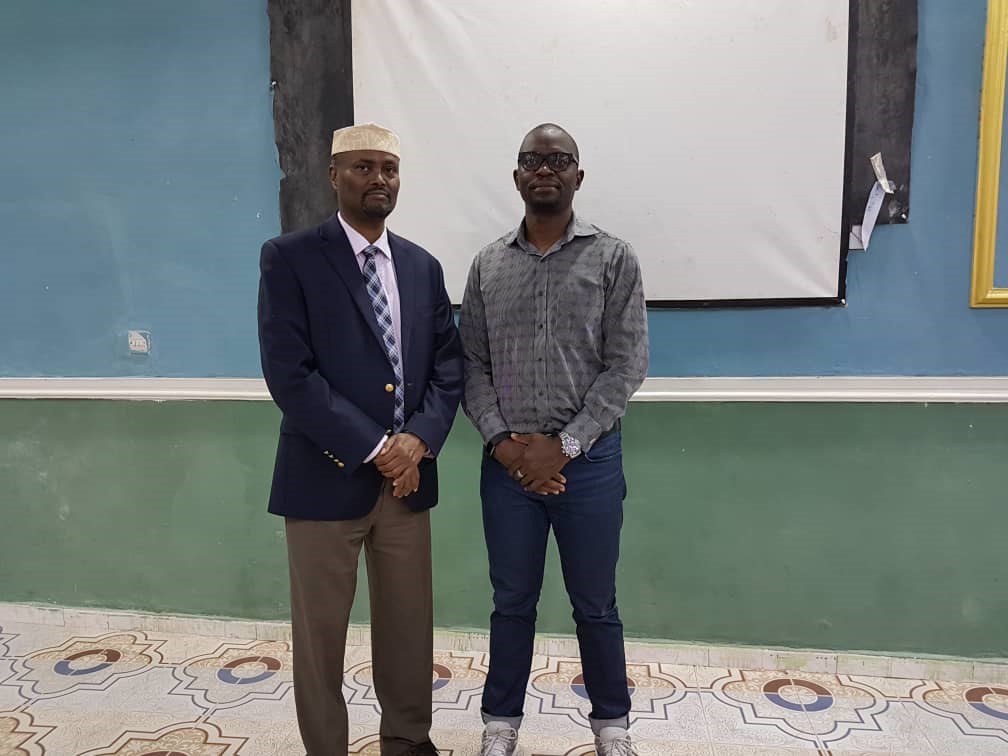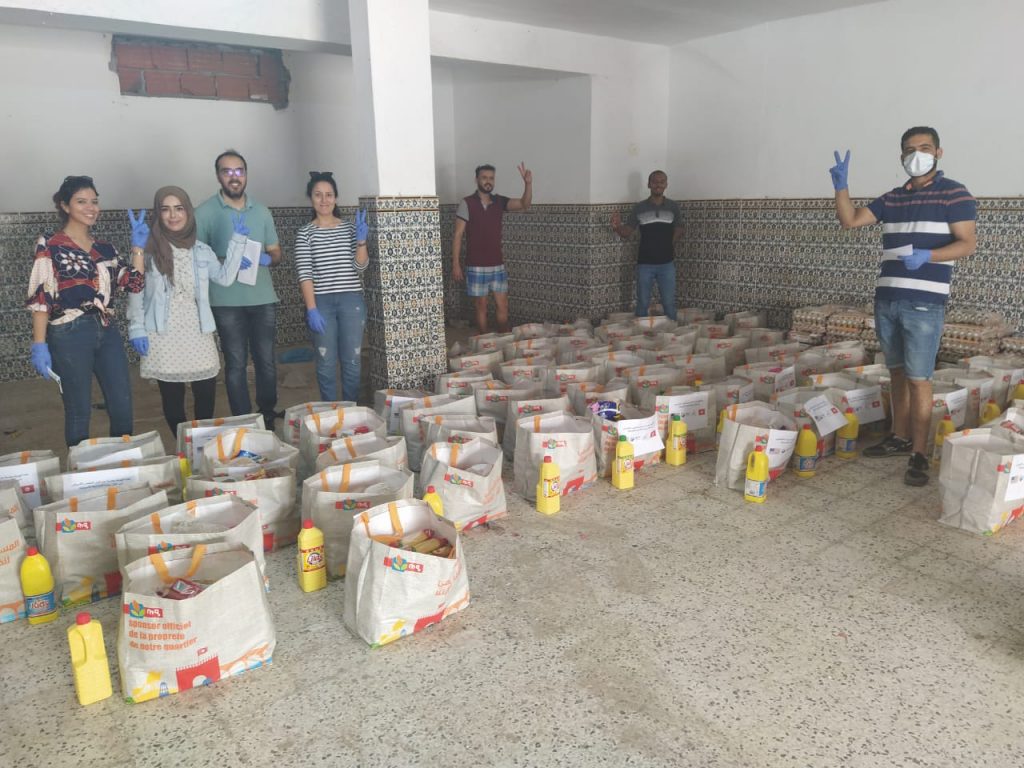Message from FSVC President & CEO
Dear Members of the FSVC Community,
In recent weeks, all of us, in our respective countries, have been grappling with a global pandemic like none of us has ever witnessed. In the United States, we are now also grappling with pain, fear and outrage over the senseless killing of George Floyd, and the countless others who have died due to horrific acts of racism in our country. We at FSVC stand as allies with all who are hurting, our colleagues and friends in the FSVC community, and the peaceful protesters demanding real progress against systemic, institutional racism.
At FSVC, our mission has always been to improve people’s lives, regardless of the color of their skin, their gender, their religion or in what country they were born. We work every day to include as many people as possible in safe, well-functioning financial systems that protect people’s savings, provide capital to launch their entrepreneurial dreams, and are safe from those perpetrating acts of terror and spreading extremism and violence. This mission is global, and so is our family at FSVC. We are a wonderfully diverse group, coming from very different backgrounds, and that is our strength.
We are committed, through our work and our community, to contributing to the ongoing struggle to end racism. We raise our hearts and minds in solidarity with all those seeking the same goal, and pledge our commitment to uphold our values of compassion, empathy and respect for humanity at FSVC. In the face of widespread anger and chaos, we have each other for support, and we will stand together for social justice.
With respect and in appreciation,
Andy
J. Andrew Spindler
President & CEO
Eswatini: Developing a Budget-Tracking Tool Kit

Children at a bus stop. Mbabane, Eswatini
As the last absolute monarchy in Africa, the Kingdom of Eswatini has a government structure where budgetary power is concentrated within the executive branch. To build the capacity of Parliament to oversee and influence the budget process, FSVC has been implementing a technical assistance program funded by the U.S. Agency for International Development (USAID) since 2017.
As part of this project, in May, FSVC recruited a volunteer expert who developed a budget tracking tool kit for Members of Parliament (MPs). The tool kit contains a series of budget indicators with definitions and instructions on how to gather and track quantitative and qualitative data under each indicator. This tool kit enables MPs to track the budget easily and monitor if it fulfills the targets and objectives set in the Budget Law.
Thanks to the FSVC-developed tool kit, MPs in Eswatini will be able to assess the results of budgetary spending and use financial data to advocate on behalf of their constituents. By tracking the budget against indicators, the Parliament of Eswatini will be better able to implement performance-based budgeting, an international standard that directly links budget spending to results.
Somalia: Insights from FSVC’s Senior Advisors

Mohamed Adam (left) and Jackson Madzima (right). Mogadishu, Somalia
The impact of the COVID-19 crisis has been global, although different in each country. In Somalia, FSVC has been implementing since 2016 a program funded by the U.S. Department of State to strengthen the financial sector and safely facilitate remittances and capital inflows. The FSVC Senior Advisors/Mentors in Somalia, Mohamed Adam and Jackson Madzima, answered some of our questions to give us a better overview of the situation in Somalia.
Could you please tell us about the COVID-19 situation in Somalia?
COVID-19 has challenged Somalia in many ways. The Government of Somalia possesses limited financial and human resources, and a lot of those resources are geared toward combating the terrorist group Al-Shabaab. As such, the government was ill-prepared to manage the COVID-19 crisis both financially and logistically. Furthermore, Somalia’s population includes a large number of low-income workers and internally displaced people who cannot afford to stay at home. As a result, social distancing could not be fully enforced.
On the economic front, as Somalia depends heavily on foreign remittances, the grounding of international airlines has stopped remittance flows and resulted in a major cash shortage. During April alone, remittances from overseas were reduced by 15%, and the figure is expected to worsen over the next couple of months.
What are the top challenges experienced by financial institutions in Somalia?
The Central Bank of Somalia (CBS) was already working in a difficult environment, and the pandemic has created additional operational challenges. The CBS has requested that most of its employees work from home, which has been challenging due to the limited internet connectivity. In parallel, the financial impact of reduced remittances has created additional work for the CBS, as it is trying to track remittance flows more effectively.
What is your role at FSVC?
We are both Senior Advisors/Mentors to the CBS under the FSVC program “Strengthening the Financial Sector in Somalia.” We are responsible for the implementation of capacity-building initiatives on two levels: We train, mentor and advise the CBS on the effective anti-money laundering and combating the financing of terrorism (AML/CFT) regulation and supervision of financial institutions, which include banks, money transfer businesses and mobile money providers. In parallel, we train financial institutions in compliance measures that meet international standards, and effectively enforce Somalia’s AML/CFT law and regulations. We also constantly explore the capacity-building needs of the CBS and local financial institutions to ensure that our program responds to those needs and adapts to changing circumstances as appropriate.
How have you adapted your work during the COVID-19 crisis?
Due to the pandemic, we have not been able to re-deploy to Mogadishu, Somalia’s capital. We now work remotely from Botswana and Canada, where we are respectively based, and this has taken away our ability to engage in face-to-face interactions. We have adapted our work by focusing on the drafting of documents for our counterparts, including Guidelines for the AML/CFT Regulations for Financial Institutions. This approach has allowed us to create more baseline materials for the CBS and financial institutions. Additionally, we have adapted by maintaining active communication and interaction with the CBS team through telephone and video conferencing using various platforms. Thanks to the strong relationship FSVC has developed with the CBS and the Somali financial sector, our work is going smoothly, all things considered.
Tunisia: Responding to the COVID-19 Crisis

Volunteers distributing meals. Gabes, Tunisia, May 2020
The coronavirus pandemic has created an unprecedented economic and social crisis in Tunisia, leaving many households and small businesses deprived from their regular income.
To give hope during Eid al-Fitr, one of the most important religious holidays celebrated by Muslims to mark the end of the month-long fasting of Ramadan, FSVC, in partnership with the Chambers of Commerce of Northwest, Southeast and Southwest Tunisia and several charities, distributed food boxes to 310 families affected by the pandemic.
FSVC has been implementing a program funded by the U.S. State Department’s Middle East Partnership Initiative (MEPI) since 2019 to support small businesses and Chambers of Commerce in the Northwest, Southeast and Southwest of Tunisia. FSVC benefits from a strong relationship with the local entrepreneurial community across the country.